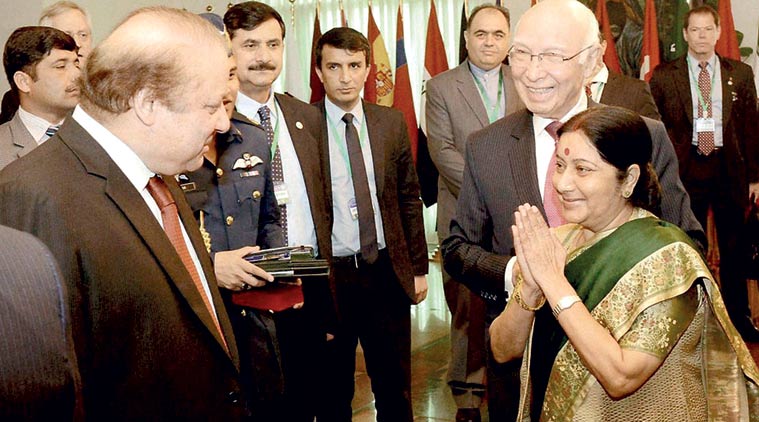Very recently India’s External Affairs Minister Sushma Swaraj visited Pakistan to attend the Heart of Asia Conference. On the sidelines she met with Prime Minister Nawaz Sharif and Foreign Affairs Advisor Sartaj Aziz. As a result India and Pakistan have agreed to talk once again. However, what had begun in 1997 as “composite dialogue” and met with a number of disruptions would now be called “Comprehensive Bilateral Dialogue”. In the past, Pakistan and India had resolved some of the bilateral disputes or issues with the help of the third party. The tricky issue of sharing of river water was settled under the Indus Basin Water Treaty concluded in September 1960 through the mediation of World Bank President Eugene Black. In April 1965, Pakistan and India had military clashes over the Rann of Kutch. The matter was resolved through mediation by British Prime Minister Harold Wilson.

Unfortunately, after the defeat in the 1971 War, Pakistan was too weak when President (He was not then Prime Minister) Zulfikar Ali Bhutto visited India to conclude Simla Agreement which inter alia said: “(ii) That the two countries are resolved to settle their differences by peaceful means through bilateral negotiations or by any other peaceful means mutually agreed upon between them.” Since then India has never agreed to any third party intervention or mediation to resolve any dispute between Pakistan and India even when the two countries have failed to move forward. During the Kargil War India did not accept any formal role of the United States although it was President Clinton who resolved the crisis. By agreeing to rename the ‘Composite Dialogue’ or ‘Resumed Dialogue’ as ‘Comprehensive Bilateral Dialogue’, Pakistan has reaffirmed that it would not take any bilateral dispute or issue with India to any other forum. In fact, if Pakistan desires it may find a loophole in Article 103 of the United Nations Charter which says: “In the event of a conflict between the obligations of the Members of the United Nations under the present Charter and their obligations under any other international agreement, their obligations under the present Charter shall prevail.” The mantra of ‘bilateralism’ is not likely to lead the two countries to anywhere.